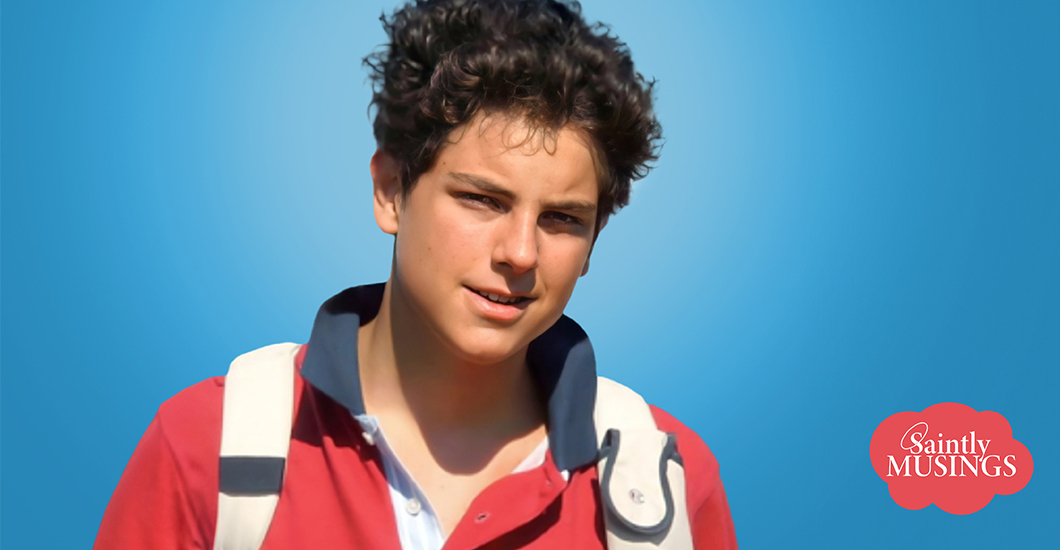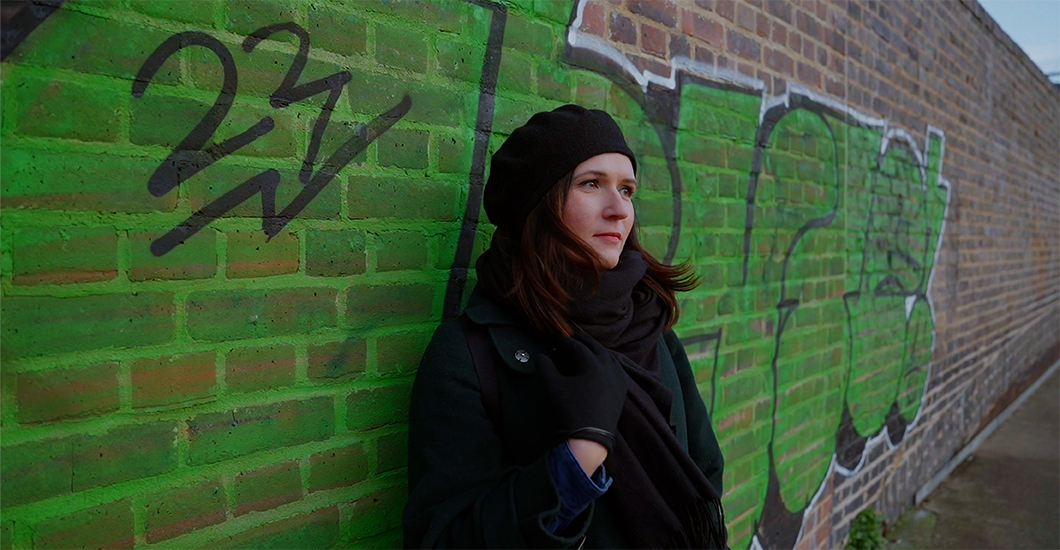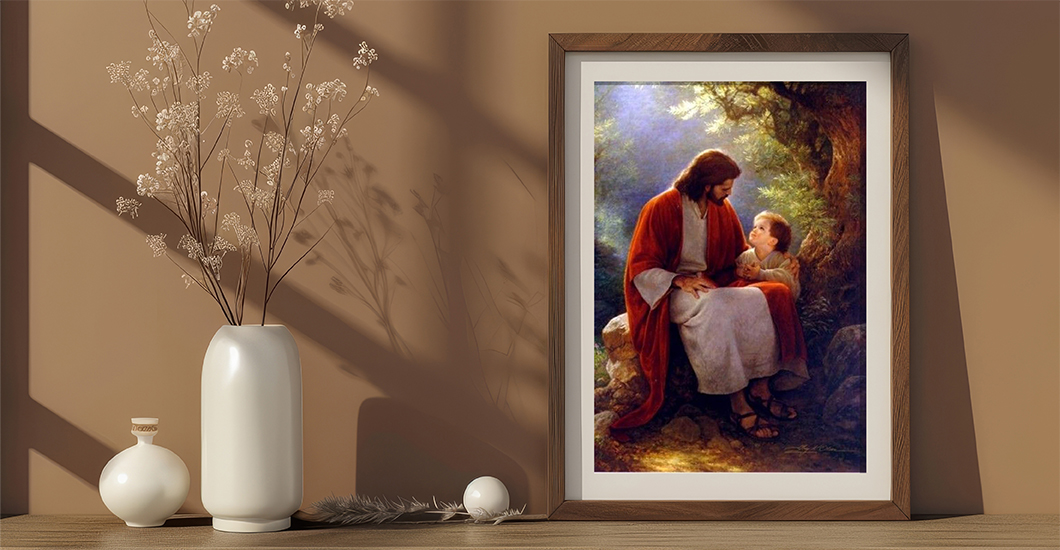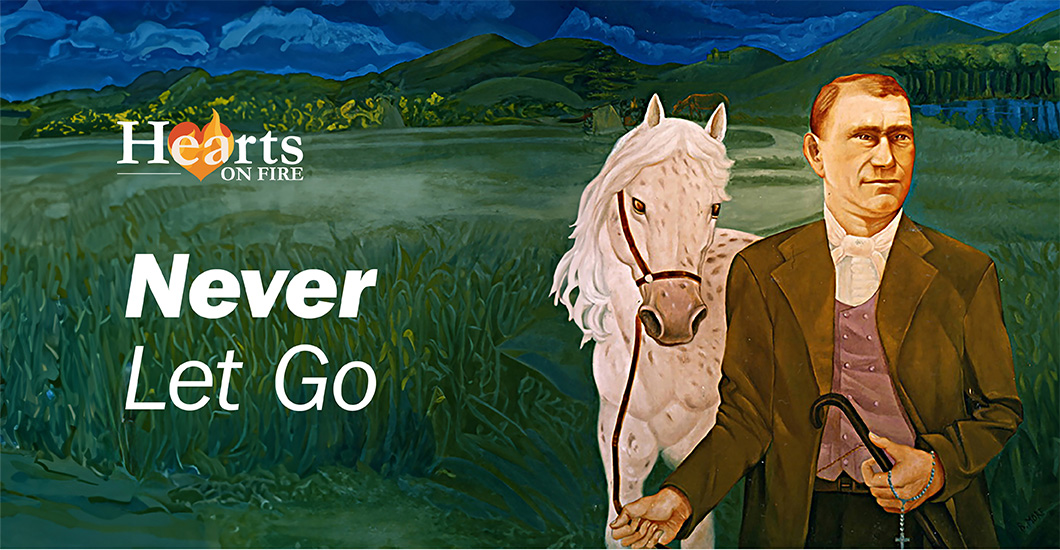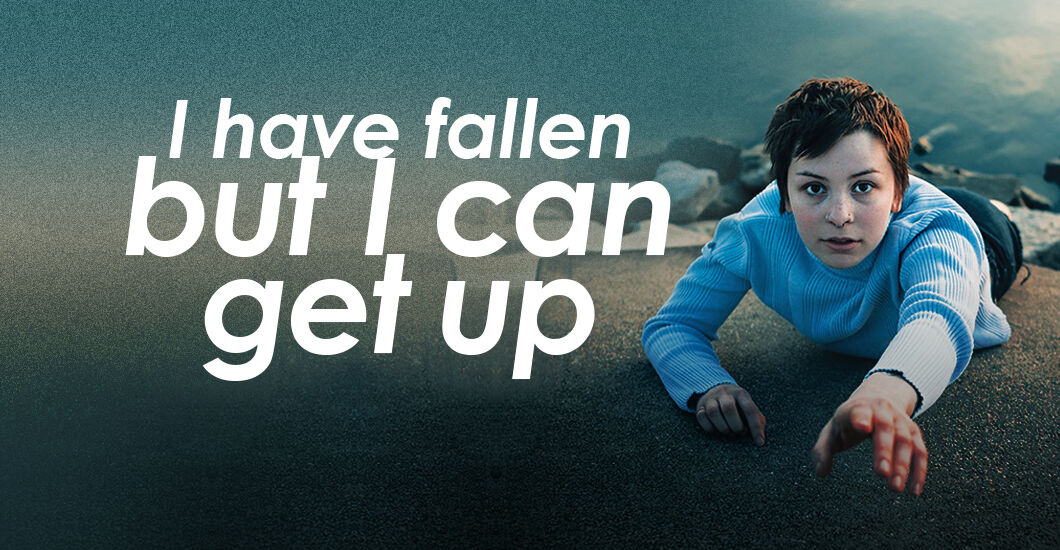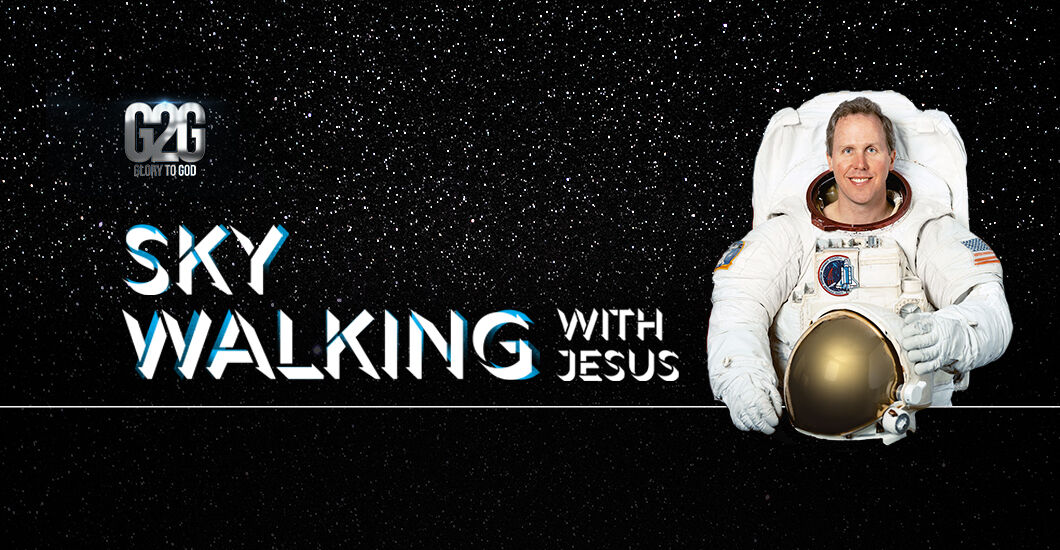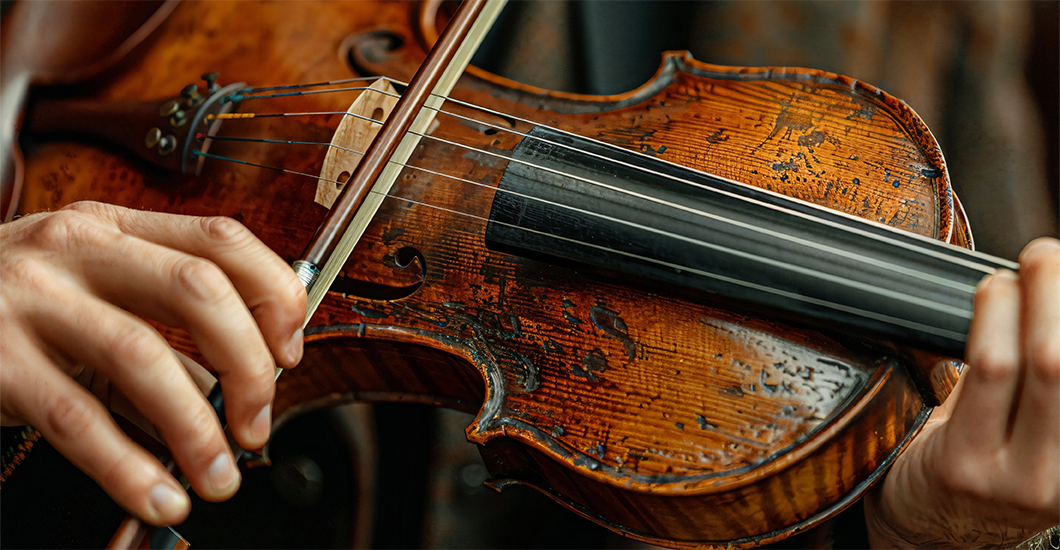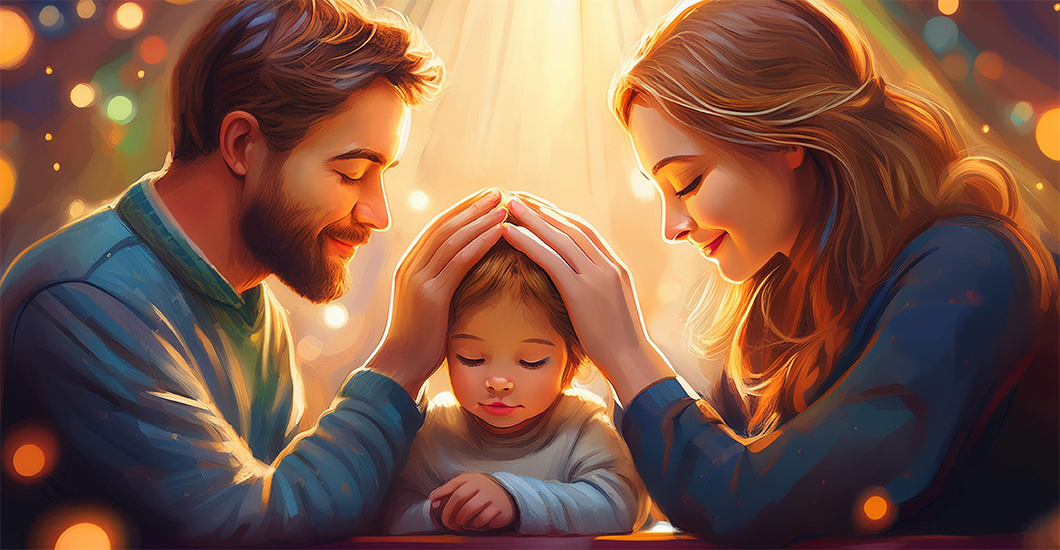Trending Articles
He is Writing My Story
I was three when my life turned upside down. Nothing was ever the same again, until I met Him!
At three years of age, I had a heavy fever followed by a sudden seizure, after which I started showing signs of facial palsy. By the time I was five, my face became visibly asymmetric. Life ceased to be smooth.
As my parents kept reaching out to new hospitals, the pain and mental damage I went through became too much to bear—the repeated questions, the weird looks, the effects and aftereffects of new medications every once in a while…
Crawling into a Cocoon
I was comfortable alone because, ironically, groups made me feel lonely. I was so scared that the kids next door might cry out loud if I smiled at them. I remember the sweets my dad brought home every night to help me drink the unpleasant medicine, which was overloaded with bitterness. The weekly walks with my mother along the hospital corridors for the physiotherapy sessions were never a weekend trip—every time the vibrations from the stimulator hit my face, tears would start to roll down.
There were some beautiful souls who soothed my fears and pain, like my parents, who never gave up on me. They took me to every hospital they possibly could, and we tried a variety of treatments. Later, I would also see them devastated when neurosurgery was suggested.
For the first time in my life, I felt that I was being lived out somewhere else. I had to do something. So, in the first semester of college, unable to bear it any longer, I decided to discontinue the medicines.
Discovering Beauty
After I stopped the meds, I had an adrenaline rush to create something on my own. I welcomed a new life, but I was totally clueless about how I should live it. I started writing more, dreaming more, painting more, and searching for colors in all the grey areas of life. Those were the days I started actively participating in the Jesus Youth Movement (an international Catholic movement approved by the Holy See); I started to slowly learn how to open myself to God’s love and feel loved again…
The realization of the importance of the Catholic lifestyle helped me understand my purpose. I started to believe again that I am so much more than everything that has happened to me. Now, when I look back at those moments marked by the closed doors, I can clearly see that within each rejection, the ever-compassionate presence of Jesus accompanied me, enveloping me with His boundless love and understanding. I recognize who I’ve become and the wounds I’ve healed from.
Reason to Hold on
Our Lord says: “Since you are precious and honored in my sight, and because I love you, I will give people in exchange for you, nations in exchange for your life. Do not be afraid, for I am with you.” (Isaiah 43:4-5)
Finding Him in my insecurities was never an easy task. While having plenty of reasons to move farther, it was all about finding that one reason to stay. And it gave me strength and confidence to live through my vulnerabilities. The journey of finding my worth, dignity, and joy in Christ was simply wonderful. We often complain about not finding grace even after the struggles we go through. I think it’s all about seeing through the struggles. Expressing honesty in the slightest adjustment in life without any sort of wrath brings light to your life.
It was quite a journey. And while He is still writing my story, I’m learning each day to embrace more, reach out without inhibitions, and make room for little joys in life. My prayers no longer hold the constant need for things I desire. Instead, I’m asking Him to strengthen me to say ‘Amen’ to the changes that keep happening along the way.
I’m praying that He heals and transforms me from all the negative influences within and around me.
I’m asking Him to revive the parts of me that were lost.
I’m thanking Him for everything I’ve been through, all the blessings I receive every minute of the day, and for the person I’ve become.
And I’m trying my best to love Him with all my heart and soul.
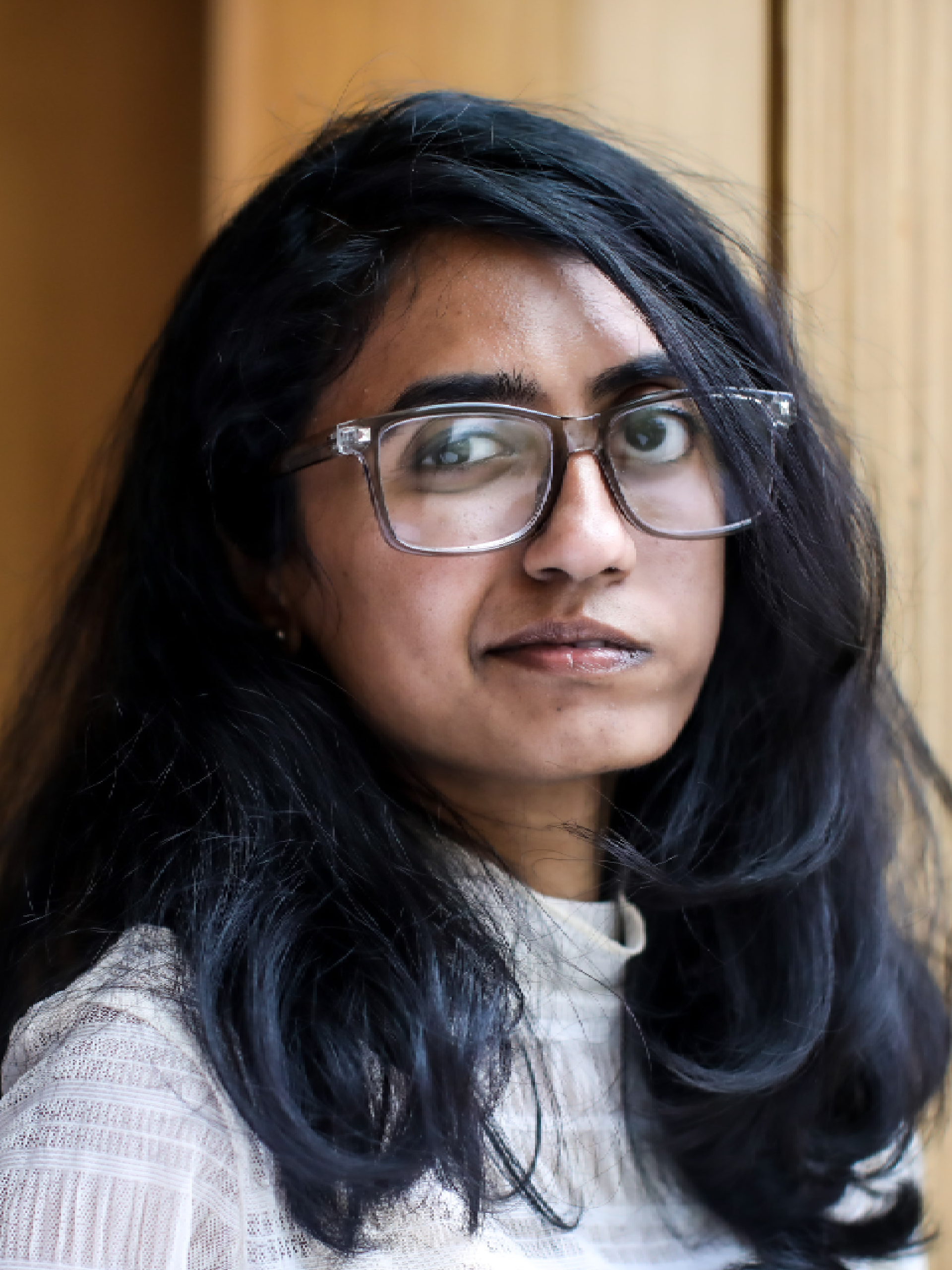
Emilin Mathew is a civil servant in the UK. She lives in Sunderland and loves to read, paint, and scribble her thoughts at sanguinitydesign.wordpress.com.
Related Articles
When she lost her mobility, eyesight, listening, voice, and even the sense of touch, what prompted this young girl to describe her life as ‘sweet?’ Little Benedetta, at age seven, wrote in her diary: “The universe is enchanting! It is great to be alive.” This intelligent and happy lass, unfortunately, contracted polio in her childhood, which left her body crippled, but nothing could cripple her spirit! Hard Times on Roll Benedetta Bianchi Porro was born in Forlì, Italy, in 1936. As a teenager, she began to go deaf, but despite this, she entered medical school, where she excelled, taking oral exams by reading the lips of her professors. She had an ardent desire to become a missionary doctor, but after five years of medical training and just one year short of completing her degree, she was forced to end her studies due to increasing illness. Benedetta diagnosed herself with neurofibromatosis. There are several iterations of this cruel disease, and in Benedetta’s case, it attacked the nerve centers of her body, forming tumors on them and gradually causing total deafness, blindness, and later, paralysis. As Benedetta’s world shrank, she demonstrated extraordinary courage and holiness and was visited by many who sought her counsel and intercession. She was able to communicate when her mother would sign the Italian alphabet into her left palm, one of the few areas of her body that remained functional. Her mother would sign letters, messages, and Scripture painstakingly into Benedetta’s palm, and Benedetta would reply verbally despite her voice having been weakened to a whisper. “They’d come and go in groups of ten and fifteen,” said Maria Grazia, one of Benedetta’s closest confidantes. “With her mother as interpreter, she was able to communicate with each one. It seemed as though she could read our innermost souls with extreme clarity, even though she couldn’t hear or see us. I will always remember her with her hand extended ready to receive the Word of God and her brothers and sisters.” (Beyond Silence, Life Diary Letters of Benedetta Bianchi Porro) It’s not that Benedetta never experienced agony or even anger at this disease that was robbing her of the ability to become a medical doctor, but in accepting it, she became a doctor of another sort, a kind of surgeon to the soul. She was, indeed, a spiritual doctor. In the end, Benedetta was no less a healer than she ever desired to be. Her life had shrunken all the way down to the palm of her hand, it was no bigger than a Communion host—and yet, just like a Blessed Communion Host, it had become more powerful than she would have ever imagined. It is impossible to miss the correlation between Benedetta’s life and Jesus in the Blessed Sacrament who is hidden and small too, silent and even weak, but an ever-present friend to us. Towards the end of her life, she wrote to a young man who suffered similarly: “Because I'm deaf and blind, things have become complicated for me … Nevertheless, in my Calvary, I do not lack hope. I know that at the end of the road, Jesus is waiting for me. First in my armchair, and now in my bed where I now stay, I have found wisdom greater than that of men—I have discovered that God exists, that He is love, faithfulness, joy, certitude, to the end of the ages … My days are not easy. They are hard. But sweet because Jesus is with me, with my sufferings, and He gives me His sweetness in my loneliness and light in the darkness. He smiles at me and accepts my collaboration.” (Venerable Benedetta Biancho Porro, by Dom Antoine Marie, OSB) A Compelling Reminder Benedetta passed away on January 23, 1964. She was 27 years old. She was venerated on December 23, 1993, by Pope John Paul II and beatified on September 14, 2019, by Pope Francis. One of the great gifts that the Saints bring to the Church is that they give us a clear picture of what virtue looks like, even in incredibly difficult circumstances. We need to ‘see ourselves’ in the lives of the Saints in order to be strengthened for our own. Blessed Benedetta is truly a model of sanctity for our times. She is a compelling reminder that even a life filled with serious limitations can be a powerful catalyst for hope and conversion in the world and that the Lord knows and fulfills the deepest desire of every heart, often in surprising ways. A Prayer to Blessed Benedetta Blessed Benedetta, your world became as small as a communion wafer. You were immobilized, deaf, and blind, and yet you were a powerful witness to the love of God and the Blessed Mother. Jesus in the Blessed Sacrament is hidden and small too, silent, immobilized, and even weak—and still all-powerful, ever present to us. Please pray for me, Benedetta, that I will collaborate, as you did, with Jesus, in whatever way He wishes to use me. May I be granted the grace to allow the Almighty Father to speak through my littleness and loneliness, too, for the glory of God and the salvation of souls. Amen.
By: Liz Kelly Stanchina
MoreA familiar picture, a routine job, but that day, something different caught her eye. On the corner of my bathroom vanity is an old photocopy of a drawing (original source long forgotten) in a clear, plastic frame. Years ago, one of my now adult sons had carefully framed it and set it on his dresser. It sat there until he grew up. When I re-homed, I transferred it to the corner of my bathroom vanity. On Saturdays, when I clean the bathrooms, I always lift the little frame and wipe the surfaces beneath it. Occasionally, I’ll swipe my cloth over the smooth sides of the frame to wash away any settled dust and invisible germs. But, like so many other familiar things, I rarely take notice of the image inside the old childish frame. One particular day, though, this picture caught me by surprise. I eagerly focused on the eyes of the two figures in the image—a child and Jesus. The expression on the little child’s face was one of loving adoration. The innocence of child-like wonder and unrestrained admiration resonated in his soft, penciled eyes. The child’s tender, upward gaze seemed not to notice the horror of the crown of thorns atop Christ’s head or the Cross crushing His right shoulder. In contrast, Jesus’s eyes peered down from beneath heavy lids and shadowed creases. The artist had managed to skilfully veil the depth of pain behind those eyes. Drawing Parallels I recalled a memory from my early years as a mother. I was big with baby number three. In the last days of pregnancy, I was attempting to soothe my aching body with a warm bath. I bounded my two young sons. They were full of energy and chatter as they moved around the tub and peppered me with questions. My privacy and physical discomfort were of no consequence to their boyish minds. I remembered the tears that rolled down my face as I tried, in vain, to get my sons to understand that I was hurting and in need of some space. But, they were simply little children who saw me as their ever-present mama, the one who kissed away boo-boos and always stood at the ready to hear their stories and meet their needs. They lacked understanding of the physical sacrifices that child-bearing demands. And I was too familiar to be seen by them as someone other than their strong, steadfast mother. I considered the parallels. Like my little boys, the pictured child saw Our Lord through his individual, human lens of experiences. He saw a loving Teacher, a faithful Friend, and a steadfast Guide. Christ obscured the intensity of His Passion—out of mercy and met the child’s gaze with tenderness and compassion. The Lord knew that the child was not ready to see the full measure of the suffering that his salvation had cost. Lost in the Darkness Our familiarity with things, people, and situations can make us blind to reality. We most often see through the clouded tunnel of old experiences and expectations. With so many stimuli competing for our attention, it is reasonable that we filter out the world around us. But, like the child in the picture and my own little ones, we tend to see what we want to see and ignore that which does not correspond with our perspectives. I believe that Jesus wants to heal our blindness. Like the blind man in the Bible who, on being touched by Jesus, said: “I see men, but they look like trees, walking” (Mark 8:22-26), most of us are not ready to see the ordinary with divine eyes immediately. Our eyes are still too accustomed to the darkness of sin, too attached to our self-reliance, too complacent in our worship, and too proud of our human endeavors. The Full Picture The price paid for our salvation on Calvary was not an easy price. It was sacrificial. Yet, like the child in the picture on my bathroom vanity, we focus only on Jesus’s tenderness and mercy. And because He is merciful, Jesus doesn’t rush; He allows us to come to a gradual maturity of faith. However, it is good to ask ourselves every once in a while if we sincerely render efforts towards spiritual maturity. Christ did not give His life so that we might remain in the fantasy world of continued blessings. He gave His life so that we might have eternal life, and we need to open our eyes to see that He bought it at the price of His blood. As we journey through Lent and especially Holy Week, we need to allow Christ to open our eyes little by little, surrender ourselves to His will, allow Him to remove our idols one by one, and strip away that which has become familiar in our lives so that we may begin to see the old blessings of worship, family, and holiness with new eyes of deep, abiding faith.
By: Tara K. E. Brelinsky
MoreIt was July 1936, the height of the Spanish war. El Pelé was walking through the streets of Barbastro, Spain, when a huge commotion captured his attention. As he rushed to the source, he saw soldiers dragging a priest through the streets. He couldn’t just stand on the fringes and watch; he rushed to defend the priest. The soldiers weren’t intimidated and shouted at him to surrender his weapon. He held up his rosary and told them: “I have only this.” Ceferino Giménez Malla, fondly known as El Pelé, was a Romani—a community often pejoratively referred to as Gypsies and looked down upon by mainstream society. But Pelé was held in great esteem not only by his own community, even educated people respected this illiterate man for his honesty and wisdom. When he was arrested and imprisoned in 1936, his wife had passed away, and he was already a grandfather. Even in prison, he continued to hold fast to his rosary. Everyone, even his daughter, begged him to give it up. His friends advised him that if he stopped praying, his life might be saved. But for El Pelé, to give up his rosary or to stop praying was symbolic of denying his faith. So, at the age of 74, he was shot dead and thrown in a mass grave. This brave soldier of Christ died shouting: "Long live Christ the King!" still holding a rosary in his hands. Sixty years later, Blessed Ceferino Giménez Malla became the first of the Romani community ever to be beatified, proving again that the Savior is ever-present to everyone who calls upon Him, irrespective of color or creed.
By: Shalom Tidings
MoreTo be good at anything, we have to put time, effort, and practice into it. The same applies to our preparation for eternity. How well are we going to do at the end of year exams if we have put little or no time towards studying during the year? Similarly, how well will we stand up on judgment day when we are held accountable for our lives? In our preparation period on earth for eternity, how much of our life was spent in prayer, good works, and sacrifice? Our Lord paid the ultimate price for our salvation, but we have to play our part. As He has graciously allowed us to be part of that sacrifice, let us not waste this valuable opportunity. He, through Calvary, has given us a chance to be part of His redemption, to be part of His sanctity, consequently allowing mere humans to be called into sainthood. What a privilege! As my mother would always remind us, children, this life of ours on earth, short or long, is but a preparation period, the springboard to eternity. How we fare in the structure of eternal life will be determined not only by Jesus’ death and resurrection, but by every thought, word, and deed we perpetrated during the time we spent on earth.
By: Sean Hampsey
MoreGod answers prayers and sometimes He goes so far beyond anything we ever believed could happen... There’s a popular television commercial that aired for many years portraying an injured person desperately calling out, “Help, I’ve fallen and I can’t get up!” Although they’re just actors selling a medical alert system that summons help in case of an emergency, each time I’ve seen that commercial I’ve wondered what it would be like to be in such a desperate vulnerable position. Being alone and incapable of getting back up after falling must feel stressful and frightening. Fortunately there are companies and gadgets we can rely on to put safety measures in place for us or our endangered loved ones. Recurring Dilemma That commercial came to mind one day when I was examining my conscience in preparation to receive the Sacrament of Penance (also known as Reconciliation or Confession). After reflecting on the things that were offensive to God that took me further from His presence, it was frustrating to fall off the path to holiness again and again. It occurred that there were things that I needed to confess that I’d previously confessed often. Saint Paul talks about his struggles with the same dilemma. In the book of Romans (7:15-19) he said, “I cannot understand my own behavior. I fail to carry out the things I want to do, and find myself doing the very things I hate...instead of doing the good things I want to do, I carry out the sinful things I do not want.” This is a struggle we all experience. The Catechism of the Catholic Church defines this unwanted inclination to sin as “concupiscence”. It was easy to relate to the actor in the commercial because spiritually I’d fallen, and it felt like I couldn’t get back up. Drawing away from God placed me in a desperate, vulnerable position deprived of many of the graces He offers us. My relationship with God was damaged, and the thought of staying in that fallen state was stressful and frightening. However, Jesus loves me. He’s merciful and has put safety measures in place for all of us who still suffer with the unwanted inclination to sin. Unceasing Prayer The church my family attended offered the Sacrament of Penance an hour before the Saturday evening Vigil Mass. It was important for me to go to Confession on Saturday because I valued my relationship with God and wanted to restore it. I asked my husband if he would join me when confessions finished, so that we could attend Mass together. To my delight, he agreed. He was raised Methodist and for over 25 years it had been my unceasing prayer that God would place the desire on his heart to come into the fullness of his faith, by becoming a member of the Catholic Church. For now, I was waiting on God’s timing and was just happy that we’d be together. The church wasn’t crowded, so before long I was kneeling before the priest to confess my sins. Confessing sin requires humility, but the joy of absolution left me feeling new and restored. After completing the penance from the priest, my heart no longer felt heavily weighed down by sin. Everything around me and in me was quiet, as a sense of peace encompassed my spirit once again. Repeatedly, I thanked God for His mercy. At one point, I sighed with contentment, “Lord, I don’t want to spoil this moment by asking you for anything. I just want to thank You over and over again. I want to be like the one leper who came back to thank You after You healed him.” I knelt there engulfed in His holy presence and understood what being in a state of grace really felt like. Jesus had restored our relationship and we were one again. However, being still and quiet is a virtue that is a regular struggle for me. It wasn’t long before a strong impulse to ask God for just one thing popped into my head. “Lord, just one thing and it isn’t for myself. Please give my husband the desire to become Catholic. I want him to know what this feels like.” Time in quiet prayer passed quickly and it wasn’t long before my husband sat beside me. I’ve heard it said that when you pray in the state of grace, your prayers are clearly heard by God. You’re so close to Him that He can hear the whispers of your heart. I’m not sure if that’s solid Catholic doctrine, but it makes a point of how important it is to remain close to God. When Mass began that evening, the priest welcomed everyone and he asked us to take a quiet moment to offer our Mass up for any personal intentions we might have that evening. His prompting was wonderful but not the way he usually opened the Mass. Not wanting to waste the moment, I immediately repeated the prayer for my husband to come into the Catholic faith. I’d never heard that priest begin the Mass like that before or since that evening. In hindsight, it was a good indication that God’s answer to my prayer was imminent. The intention remained in my heart for the rest of Mass, and I felt very connected to both God and my husband. Startling News On our way home, my husband unexpectedly said he had something to tell me. It was a very good thing that he was driving, because the following words might have startled me into swerving off the road. “I have decided that I want to enroll in the RCIA (Rite of Christian Initiation of Adults) program at our church and see if I want to become a Catholic.” Stunned, I said nothing. Thoughts and emotions swirled through my mind and body. I recall asking God: “What was happening here? Had the Sacrament of Reconciliation cleared up the connection for you to hear my prayer? Had my personal Mass intention been heard? Were You really answering my prayers after all these years?” After regaining my composure, my husband and I talked about his decision. We had been attending Mass together for our entire marriage and it was important to him that our family went to one church. Through the years, he had had many questions, but had grown to love and trust the Catholic Church as his family. The Holy Spirit guided him to understand that was the right time to fully commit to becoming a part of that family and be able to partake in all the sacraments and their graces. The following Easter Vigil, after he’d completed the RCIA program, my husband was finally confirmed as a member of the Catholic Church, filling us both with great joy. My heart continues to dance with joy, unceasingly thanking God for this long-awaited answer to my prayer. More Surprises in Store! But wait, there’s more! God knew I’d asked Him if he’d really heard and answered my prayers. He wanted to make sure I knew for certainty that He had, because more surprises were in store. Two of our sons were in solid relationships. Both were wonderful young women who had grown up walking with the Lord in their Protestant faith. They too had been regularly included in my prayers for conversion to the Catholic faith, although I had not specifically prayed for them that evening. Within a week of that special Mass, independent of each other, both young women shared with me that they intended to become Catholics. I know with certainty that my husband's decision to become a Catholic was not a mere coincidence and as an added bonus: those wonderful young women are now my daughters- in-law. Praise God! I don’t pretend to know the mind of God, nor how the 3 of them, independent of each other, decided to become Catholics. It’s a miracle to me and I am happy to leave it at that. Okay, not exactly...one more thing. I believe that when we do something that hurts our relationship with God, we need to go to Him in Confession and say we are sorry. I believe that when we truly want to get our relationship right with God, He wants to bless us. I believe that prayer really does work and He wants to answer us. I believe that God loves me and blessed me not once, not twice, but three times that Saturday, but He wanted me to also know that He hears ALL my prayers at ALL times no matter what state I am in. I knew that I had fallen and, because of concupiscence, I am likely to fall again. Alleluia, there is good news! Even when I cannot understand my own behavior; even when I fail to carry out the things I want to do, and find myself doing the very things I hate...even when I don’t do the good things I want to do, and carry out the sinful things I do not want; with God’s grace and through His forgiveness, I know I am not alone, I don’t have to be stressed, frightened or stay fallen. I CAN get back up. Saint Paul, pray for us. Amen.
By: Teresa Ann Weider
MoreA special interview with Dr. Thomas D. Jones who went on four separate shuttle missions with NASA. On one of those missions, he was actually able to take the Eucharist with him! Tell us about what it was like to be out in space looking out at the stars and back at the Earth. How did that impact your faith in Jesus? To realize my professional dream of flying in space, which every astronaut hopes for, I had to wait for almost 30 years. So my first flight was the realization of a childhood dream. Gazing out at this immense view of the cosmos surrounding our home planet, gave me a chance to think about why I was there. It was such an emotional experience to truly see the incredible beauty of the universe, and our home planet in all its lovely variety— really breathtaking. I just felt so thankful to God for the chance to be there physically—overwhelmed by His grace and Presence. You are known as one of the astronauts who was able to bring the Eucharist into space. For all of us who are believers, that is just so inspiring. Could you share that whole experience? It was certainly amazing to all of us who participated. One can't go anywhere as remote as space and forget about your spiritual life. It is faith that helped me succeed on Earth and this is the same faith that I was counting on to help me succeed in space. On my first flight in 1994, aboard the shuttle, Endeavour, there were two other Catholic astronauts. When we got together to prepare for the 11 day mission, we talked about how wonderful it would be to take the Eucharist with us into space. So, because Kevin Chilton, our pilot on the flight, was an extraordinary minister of Holy Communion, we were able to receive permission from our pastor to bring the Blessed Sacrament with us. Every moment of the eleven-day-flight was tightly scheduled, but our Catholic commander, Sid Gutierrez, was able to find a spot about seven days in, when we were comfortable with how the mission was going, for a ten-minute Communion service. So, on that Sunday—our second Sunday in space— we took a pause from all the business of the mission to spend ten minutes alone in the cockpit with the God who had made this all possible, and share Holy Communion with Him. Indeed, it was a recognition that we could never have reached that point without His presence among us. It was really satisfying to bring our faith-life into space and to know that He was there, physically, with us. Have you ever found it difficult to bring Science and Faith together? Could you elaborate on the relationship between science and faith? Throughout my professional career, I have known many scientists who are spiritual, and they have their own faith practices. Right here in northern Virginia, I have met several Catholic scientists and engineers in my own church who share a strong faith. They believe in God’s Creation, and in the biblical inspiration of how we understand the universe. I think most people have some spiritual elements in their lives. I have known astronauts who are not formally religious, but they were all moved by the spiritual experience of space travel. So I have found that most people are open to what the universe and the natural world around us reveal in terms of how we understand Creation. Scientists are so curious, like all humans, about the nature of the universe and what we can learn about it. To me, this is a sign that science and spirituality go hand in hand. Our curiosity and interest in nature and how it functions, how the universe is put together and how it was created—that curiosity was given to us because we're made in the likeness of God. That's part of His personality imparted to us. So I think that this search for the truth about the natural world is a part of our innate nature as human beings. I believe that the quest for knowledge is something that gives God a lot of pleasure—to see the creatures that He has made seeking out the secrets of how He has put the universe together. Mind you, He's not trying to keep it a secret. He just wants it to be unveiled through our own efforts, ingenuity and curiosity. So, to me, there's not a lot of conflict between Science and Nature and Spirituality. I think that people trying to separate them are attempting to split human nature into a rational half and a spiritual half. Of course, that can’t be done. A person is one human being whose nature can't be separated. On your space missions you were accomplishing, in many ways, the epitome of human achievement. Doing something really great, and yet encountering something so much greater in magnitude—the glory and the majesty of God's creation… What was it like to have accomplished so much, while still recognizing your own smallness compared to God? To me it all crystallized on my last mission. I was helping build the space station, doing three space walks to install a science lab called Destiny. Near the end of my last spacewalk, I was out on the very front end of the space station. Since I was ahead of our work schedule, NASA’s Mission Control let me hang out for about five minutes out there. By holding on to the front of the space station with my fingertips, I was able to rotate around so I could see the immensity of space surrounding me. I looked down at the Earth, 220 miles straight down past my boots to the deep blue of the Pacific Ocean. I was floating there looking out to the horizon—a thousand miles away--and then the endless, black sky up above my head. About 100 feet above me, the space station glowed like gold with sunlight reflected from its solar panels, as we silently fell around the world together. This amazing view was so incredibly beautiful that it brought tears to my eyes. I was overwhelmed by this feeling, ‘Here I am, a highly trained astronaut on this space station, cruising around the Earth, yet I’m just a puny human being compared to this vast cosmos out there.’ God pulled the curtain back a little bit for me, letting me see that magnificent vastness in a personal way. I felt, “Yes, you're very special because you're getting to see this view”, but was reminded of how insignificant we all are in the vast universe which God has created. Feeling important and being humbled at the same time was a gift from God. It literally brought tears to my eyes as I thanked the Lord, thrilled to be sharing this view with Him. Very few humans ever have the experience and privilege of seeing Earth from that perspective, and it was all thanks to Him. There’s a lot of confusion in the world right now…a lot of darkness and suffering; but when you look at the world either from that very unique vantage point that you had in Space, or now in your current state of life, what's giving you hope? I think what inspires me is that we've been given very curious minds by God. We've got this innate curiosity and that's made us problem solvers and explorers. So, even with all the challenges we are beset by today, whether it's a pandemic, or the threat of war, or feeding seven billion people around the world, we've got the skills that we've been given and we're called to put them to good use in order to solve these problems. There is a vast universe out there, full of resources. It challenges us, but if we look beyond our home world into the solar system and the universe, there are a lot of things that we can make use of. Vast material resources on the Moon and nearby asteroids can supplement those we find on Earth. There's a colossal supply of solar energy which could be harvested from space and beamed down to the world to help supply everybody with the power and electricity that they need to succeed. We've got the ability to ward off rogue asteroids that have often struck Earth, and because we've got space skills and the minds to develop a way to defend our planet, we can prevent these most terrible of natural disasters. So, we don't have to go the way of the dinosaurs if we use the skills that we've acquired and put ourselves to the task. We live in a world that encourages us to use our curiosity and intelligence to solve these problems. So I’m very optimistic that by applying our skills and the technology we develop, we can stay ahead of all these challenges. Look at the vaccine that we developed just this year to fight the virus. That's a mark of what we can do when we put our minds to something, whether it's putting a man on the Moon or sending the first woman to Mars. I think we're in good shape for the future as well. ---- ARTICLE is based on the special interview given by Dr. Thomas D.Jones for the Shalom World program “Glory to God.” To watch the episode visit: shalomworld.org/episode/an-astronauts-faith-drthomas-d-jones
By: Dr. Thomas D Jones
MoreLatest Articles
The auction was closing, but one item remained unwanted. It was fierce competition with buyers competing to outbid each other for everything that was on offer. They eagerly snapped up all the items and the auction was closing up except for one single item—an old violin. Keen to find a buyer, the auctioneer held the string instrument in his hands and offered what he thought was an attractive price: “If anyone is interested, I would sell it for $100.” A deathly hush filled the room. As it became apparent that even that price was not enough to convince anyone to buy the old violin, he reduced the price to $80, then $50, and finally, in desperation, to $20. After another bout of silence, an old gentleman who sat at the back asked: “May I have a look at the violin, please?” The auctioneer, relieved that someone was showing interest in the old violin, conceded. At least the stringed instrument faced the prospect of finding a new owner and home. A Maestro’s Touch The old man rose from his seat at the back, slowly walked to the front, and carefully examined the old violin. Taking out his handkerchief, he dusted the surface and gently tuned each string until, one by one, they were in the right tones. Finally, and only then, did he place the old violin between his chin and left shoulder, lift the bow with his right hand, and start playing a piece of music. Each musical note from the old violin penetrated the silence in the room and danced delightfully in the air. It stunned everyone, and they listened attentively to what was coming out of the instrument in the hands of what was obvious to all—a maestro. He played a familiar classical hymn. The melody was so beautiful that it quickly enchanted everyone at the auction and they were awestruck. They had never heard of or even witnessed anyone playing music so beautifully, let alone on an old violin. And they never thought for one moment it would catch their fancy later on when the auction resumed. He finished playing and calmly returned the violin to the auctioneer. Before the auctioneer could even ask everyone in the room if they would still like to buy it, there was a rush in the raising of hands. Everyone suddenly wanted it after the impromptu masterly performance. From an unwanted item a short while earlier, the old violin was suddenly the focus of the most intense bidding competition of the auction. From the starting bid of $20, the price immediately shot up to $500. The old violin was ultimately sold for $10,000, which was 500 times more than its lowest asking price. Astounding Transformation It took only 15 minutes for the old violin to be transformed from something nobody wanted into the star of the auction. And it took a maestro musician to tune up its strings and play a wonderful melody. He showed that what looked unattractive on the outside was actually a beautiful and priceless soul inside the instrument. Perhaps, like the old violin, our lives normally do not seem to have much worth at first. But if we hand them over to Jesus, who is the maestro above all maestros, then He will be able to play beautiful songs through us and their melodies will stun listeners even more. Our lives, then, will catch the world’s attention. Everyone would then want to listen to the music that He produces out of our lives. The story of this old violin reminds me of my own story. I was metaphorically just like that old violin and nobody thought that I would be useful or could be doing something worthwhile with my life. They looked at me as if I had no value. However, Jesus took pity on me. He turned around, looked at me, and asked me: “Peter, what do you want to do with your life?” I said: "Master, where do you live?" “Come and see,” Jesus answered. So I came and saw where He lived, and stayed with Him. On the past 16th of July, I celebrated the 30th anniversary of my priesthood ordination. To know and experience Jesus’ great love for me…how could I thank Him enough? He has turned the old violin into something new and given it great value. Lord, may our lives become Your musical instrument, like that old violin, so that we may produce beautiful music people can sing forever, giving thanks and praise to Your wonderful love.
By: Father Peter Hung Tran
MoreLittle had I expected when I began this efficacious prayer... “O Little Thérèse of the Child Jesus, please pick for me a rose from the Heavenly garden and send it to me as a message of love.” This request, the first of three that compose the ‘Send Me a Rose’ Novena to Saint Thérèse, grabbed my attention. I was lonely. Lonely in a new city, longing for new friends. Lonely in a new life of faith, longing for a friend and role model. I was reading about Saint Thérèse, my baptismal namesake, without warming up to her. She had lived in passionate devotion to Jesus since she was 12 years old and petitioned the Pope to enter the Carmelite monastery at age 15. My own life had been so very different. Where’s My Rose? Thérèse had been filled with zeal for souls; she had prayed for the conversion of a notorious criminal. From the hidden world of the convent of Carmel, she devoted her prayer to interceding for missionaries spreading the love of God in far-off places. Lying on her deathbed, this holy nun from Normandy had told her sisters: “After my death, I will let fall a shower of roses. I will spend my Heaven doing good on earth.” The book I was reading said that since her death in 1897, she had showered the world with many graces, miracles, and even roses. “Maybe she will send me a rose,” I thought. This was the very first Novena I ever prayed. I didn’t think much about the prayer’s two other requests–namely the favor of interceding with God for my intention and to believe intensely in God’s great love for me so that I might imitate Thérèse’s Little Way. I don’t recall what my intention was and I had no understanding of Thérèse’s Little Way. I was focused solely on the rose. On the morning of the ninth day, I prayed the Novena for the last time. And waited. Maybe a florist will deliver roses today. Or maybe my husband will come home from work with roses for me. By the end of the day, the only rose that had crossed my doorstep was printed on a card that came in a pack of greeting cards from a missionary order. It was a bright red, beautiful rose. Was this my rose from Thérèse? My Unseen Friend Once in a while, I prayed the Send Me a Rose Novena again. Always with similar results. Roses would show up in little, hidden places; I would meet someone named Rose, see a rose on a book cover, in the background of a photo, or on a friend’s table. Eventually, St. Thérèse came to mind any time I glimpsed a rose. She had become a companion in my daily life. Leaving the Novena behind, I found myself asking her intercession in life’s struggles. Thérèse was now my unseen friend. I read about more and more Saints, marveling over the variety of ways these men, women, and children had lived a passionate love for God. Knowing this constellation of people, whom the Church has declared with certainty are in Heaven, gave me hope. In every place and in every life, it must be possible to live with heroic virtue. Holiness is possible even for me. And there were role models. Lots of them! I tried imitating Saint Francis de Sales’ patience, Saint John Bosco’s attention and gentle guidance for each child in his care, and Saint Elizabeth of Hungary’s charity. I was grateful for their examples that helped me along the way. They were important acquaintances, but Thérèse was more. She had become my friend. A Jump-Start Eventually, I read The Story of a Soul, Saint Thérèse’s autobiography. It was in this personal testimony that I first began to understand her Little Way. Thérèse imagined herself spiritually as a very little child capable of only very small tasks. But she adored her Father and did each little thing with great love, and as a gift for the Father who loved her. The bond of love was greater than the size or success of her undertakings. This was a new approach to life for me. My spiritual life was at a standstill at that time. Maybe Thérèse’s Little Way could jumpstart it. As the mom of a large and active family, my circumstances were far different from Thérèse’s. Maybe I could try approaching my daily tasks with the same loving attitude. In the littleness and hiddenness of my home, much as the convent had been for Thérèse, I could try to do each task with love. Each could be a gift of love for God; and by extension, of love for my husband, my child, the neighbor. With some practice, each diaper change, each meal I placed on the table, and every load of laundry became a small offering of love. My days became easier, and my love for God grew stronger. I was no longer lonely. In the end, it took far longer than nine days, but my impulsive request for a rose set me on a path to a new spiritual life. Through it, Saint Thérèse reached out to me. She drew me into love, to the love that is the communion of the Saints in Heaven, into practicing her “Little Way” and, most of all, into greater love for God. Ultimately I received far more than a rose! Did you know that Saint Thérèse’s feast is on October 1? Happy feast to the Therese-namesakes out there.
By: Erin Rybicki
MoreWhen was the last time you placed your hands on your child’s head, closed your eyes, and wholeheartedly prayed for them? Blessing our children is a powerful act that can shape their lives in profound ways. Biblical Examples: "David went home to bless his household." (1 Chronicles 16:43) This simple act highlights the importance of speaking positive words over our loved ones. The Lord said to Moses: “This is how you are to bless the Israelites: ‘The Lord bless you and keep you; the Lord make His face shine on you and be gracious to you; the Lord turn His face toward you and give you peace.’” (Numbers 6:22–26) These words convey God's protection, favor, and peace. Encouragement and Exaltation: When we bless someone, we encourage them, lifting them up with positive affirmations. At the same time, we exalt God by acknowledging His goodness and grace. Blessings create a positive atmosphere where children feel loved, valued, and secure. Imparting Identity: Blessings help shape a child's identity. When parents speak words of blessings over their children, they affirm their worthiness and purpose. Children internalize these messages, carrying them into adulthood. The Power of Words: In a study of team performance, Harvard Business School found that high-performing teams received nearly six positive comments for every negative one. Blessings go even further than positive comments. When we bless someone, we declare truth over them—God's truth! Children are like sponges, absorbing messages from their environment. By blessing them, we provide a counterbalance to the negative influences they encounter. As parents or caregivers, we have a responsibility to bless our children—speaking life-giving words that build them up emotionally, spiritually, and mentally. Be cautious not to curse them inadvertently through negative comments or harmful attitudes. Instead, intentionally bless them with love, encouragement, and God's truth.
By: George Thomas
MoreMy friend and I were strolling along the streets when we heard people shouting behind us. An angry bull was charging wildly along the road in the distance, as terrified people screamed and scampered away. “Let's run!” I screamed, but my friend calmly replied: “If we start running, it will definitely chase us.” After a few moments, no one remained between us and the bull. "That's it. I think we should run!" I yelled to my friend, and we both took off. We ran with all our might, but we didn’t make much headway. Some good-hearted people were attempting to capture the bull. Gasping for breath, I waited for a moment, hoping that we were safe at last. Unfortunately, the chase continued. At some point, I remembered to pray. Then, I just stopped running. I stood there, staring at the bull charging toward me. When it was just a few inches away, it halted. We looked into each other’s eyes. We stood there, face to face, for a few seconds. I scarcely dared to draw a breath. Then, suddenly it bolted in a different direction, leaving us shaken. I always wonder what happened at that moment. Who could have stood between me and the bull? I had indeed felt a powerful presence protecting me from harm. Many of us are perpetually fleeing in fear of something. We rarely face our fear and confront it with the powerful presence of God. We easily become enslaved by pacifiers like alcohol, drugs, shopping, pornography, or even over-commitment to career goals. Plunging frantically into hedonistic pleasure or overwork to suppress our anxieties may momentarily distract us from the pain of unhappy childhoods, unpaid loans, disagreeable bosses or workmates, drunken spouses, unpleasant homes, or personal failures. But it destroys our ability to build healthy relationships. Afraid to turn to the right or to the left, we let ourselves bolt in panic. How can we heal our hurts without causing further damage and find relief? "I lift up my eyes to the hills—from where will my help come? My help comes from the Lord, who made heaven and earth."(Psalm 121:1-2). When you are troubled by torments of any sort, stop running aimlessly and ask for Divine assistance. Look neither to the right nor to the left, but look to the Lord above to find the best answers to your problems.
By: Dr. Anjali Joy
More

